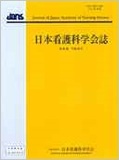Japanese
English
- 販売していません
- Abstract 文献概要
- 参考文献 Reference
- サイト内被引用 Cited by
要旨
がん患者とのEnd-of-life discussionsの概念分析を行い,定義を明確にすることを目的とする.方法はRodgersのアプローチを用い,2000年から2015年の間で45文献を対象に概念分析を行った.結果として,9個の属性として【End-of-life discussionsのタイミングを判断】【終末期の医療・ケアと死に行く過程に関する話し合い】【話し合いを書面化する】【療養の場に関する話し合い】【患者の望みや好みについての話し合い】【家族への知識提供と家族の価値観についての話し合い】【価値観,個別性の尊重】【医療者と患者・家族とのチームで共有する】【信頼関係を築き意思決定を援助】が抽出された.本概念を「がんが進行した状態にある患者に対して,患者の価値観や個別性を尊重しながら,患者と家族と医療者のチームアプローチと個々の信頼関係に基づいて,治療・緩和ケア・療養について話し合うこと」と定義した.
Background: Long-term survival has been made possible with the development of novel treatments for cancer. However, there are many patients with repeat hospitalizations and discharges depending on the changes in their conditions while continuing treatment and gradually shifting to the terminal stage. Therefore, there has been an increasing demand for discussions about end-of-life in terms of the choice or cessation of treatment and how to spend the end-of-life.
Purpose: This research aimed to clarify and conceptualize the characteristics of end-of-life discussions (EOLd) with cancer patients.
Method: The study involved data analysis using Rodger's approach. Forty-five reports in the literature in the fields of nursing and medicine published between 2000 and 2015 were selected.
Results: From the analysis of these reports, the following nine categories were extracted as attributes: “Judge the timing of end-of-life discussions”, “The contents of a discussion are made a document”, “Discussion about treatment and care in the end of life and dying process“, “Discussion about recuperation place”, “Discussion about patient's hope and preference”, “Knowledge provision to the family and discussions about family's values and preferences”, “Respect of valuation and individuality”, “Shared by a team of the medical staff, patient, and their family”, “Build the relationship and support the decision making”.
Conclusion: The EOLd with cancer patients can be defined as follows: “Discussion about treatment, palliative care, and recuperation for advanced cancer, which is based on a team approach and the relationship between patients and their families and healthcare providers, while respecting the patient's values and individuality.” Improvement of the QOL of patients who are in their end-of-life stage was realized through the process of own decision making involving the interplay of attributes and antecedents arriving at consequences.
Copyright © 2016, Japan Academy of Nursing Science. All rights reserved.


